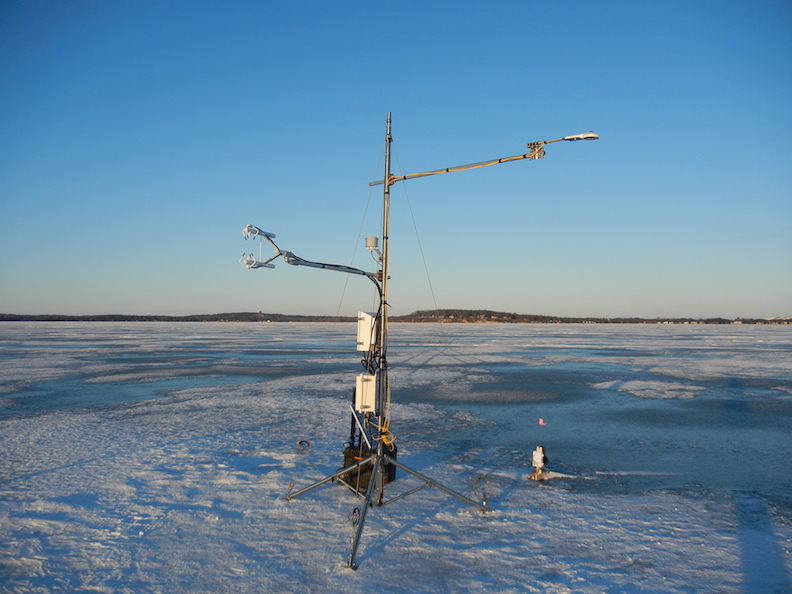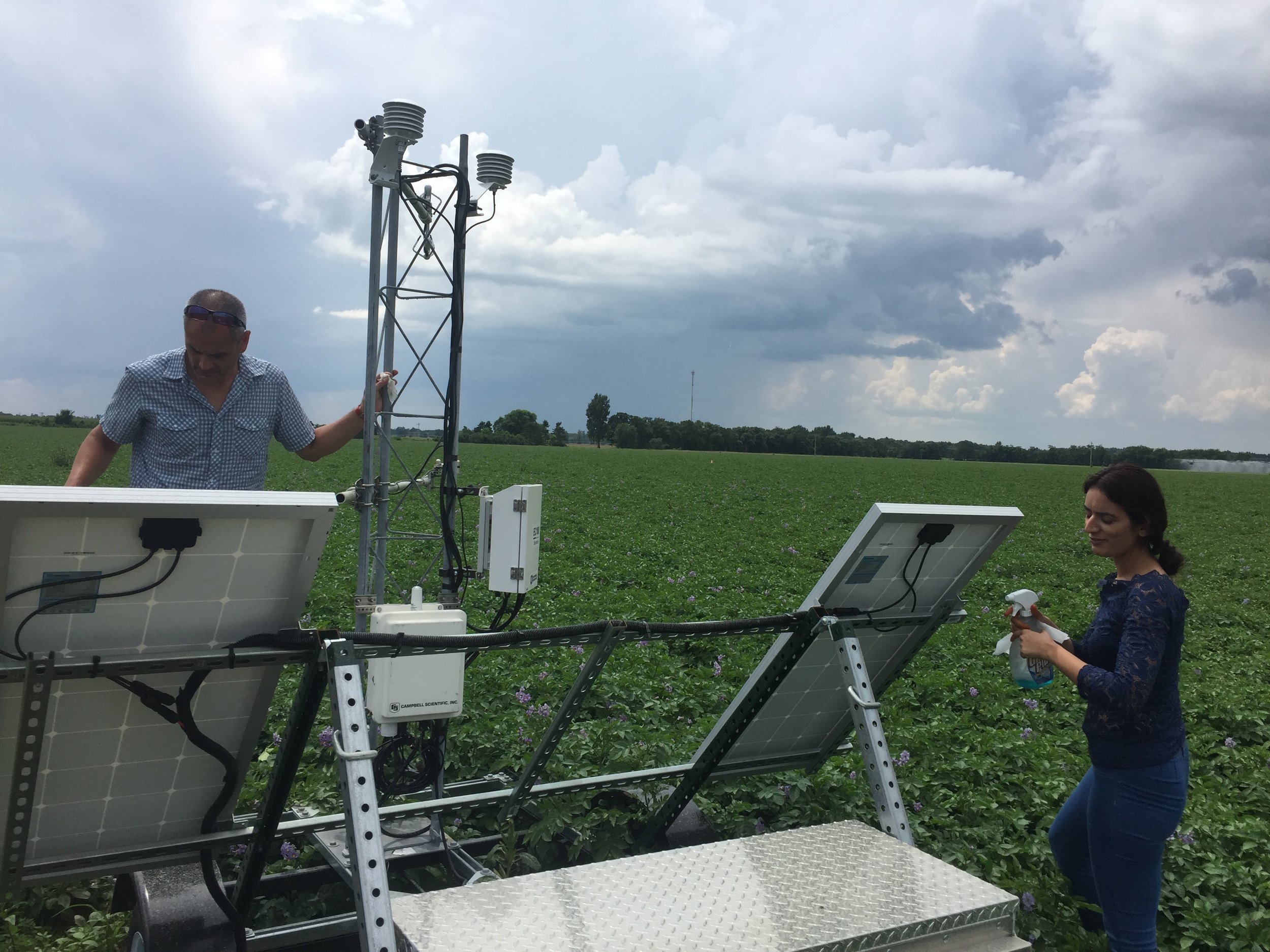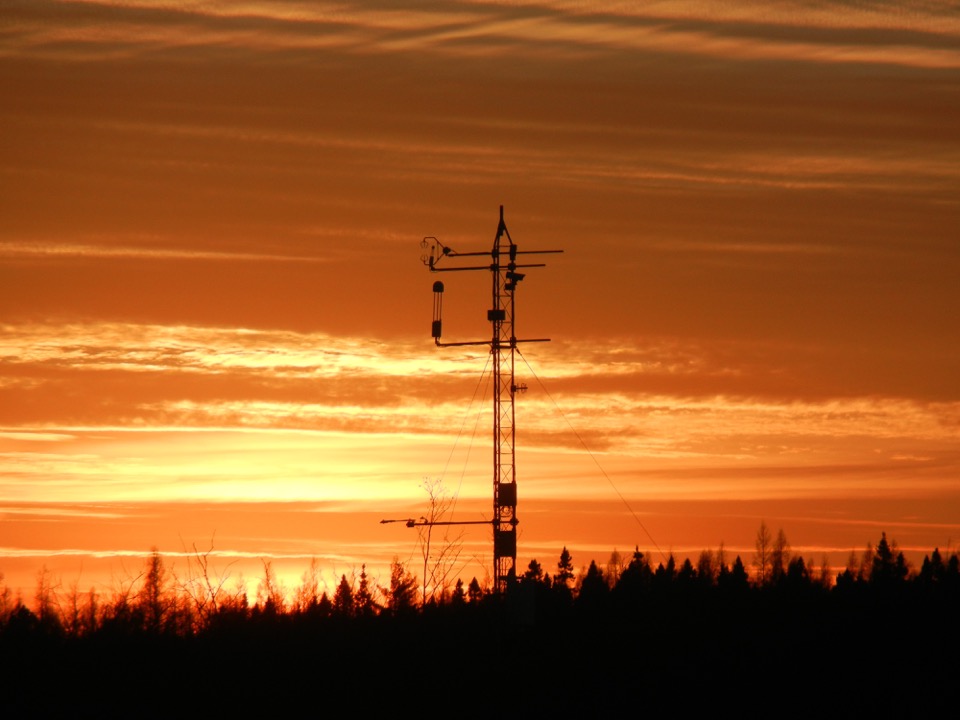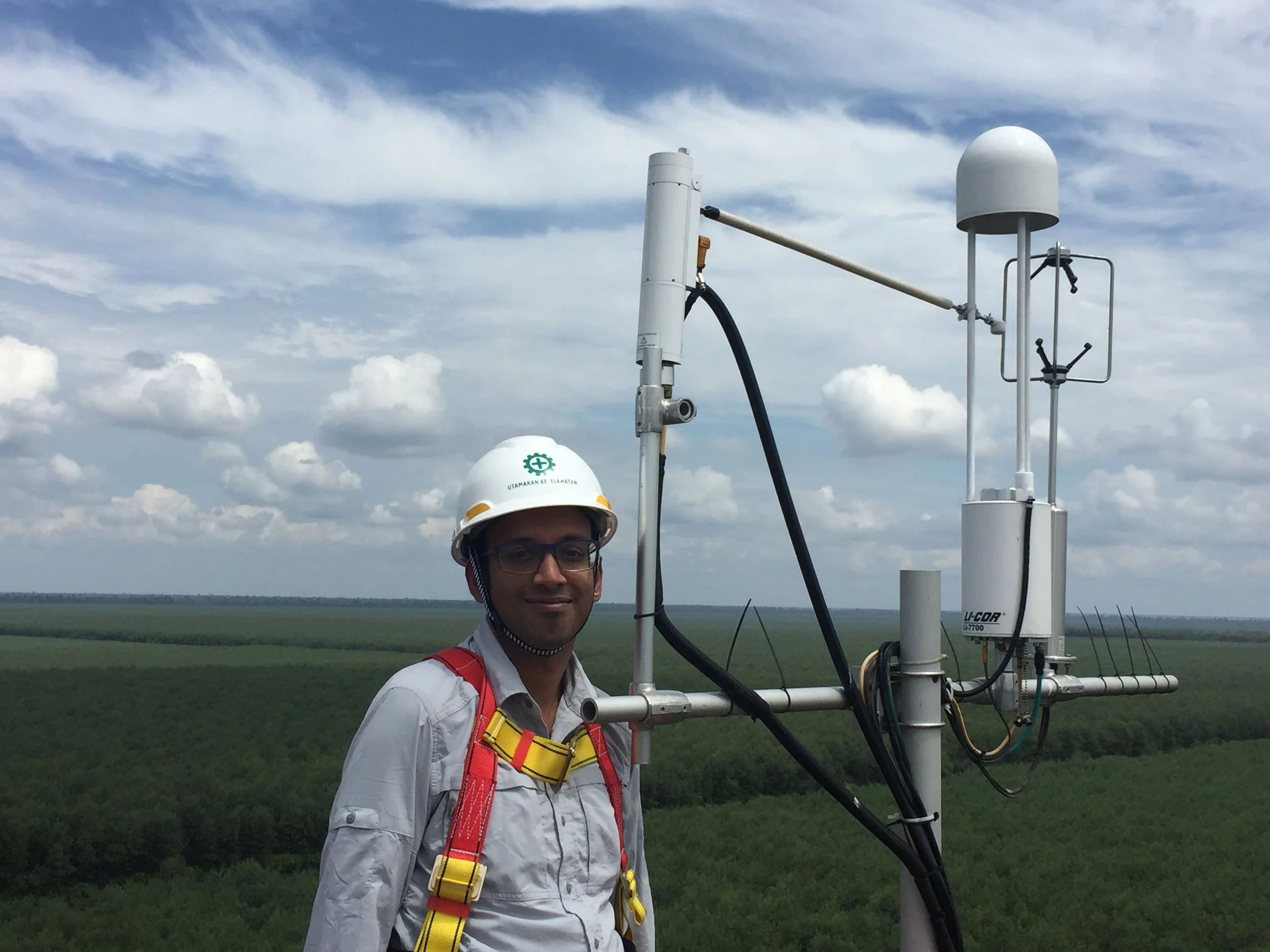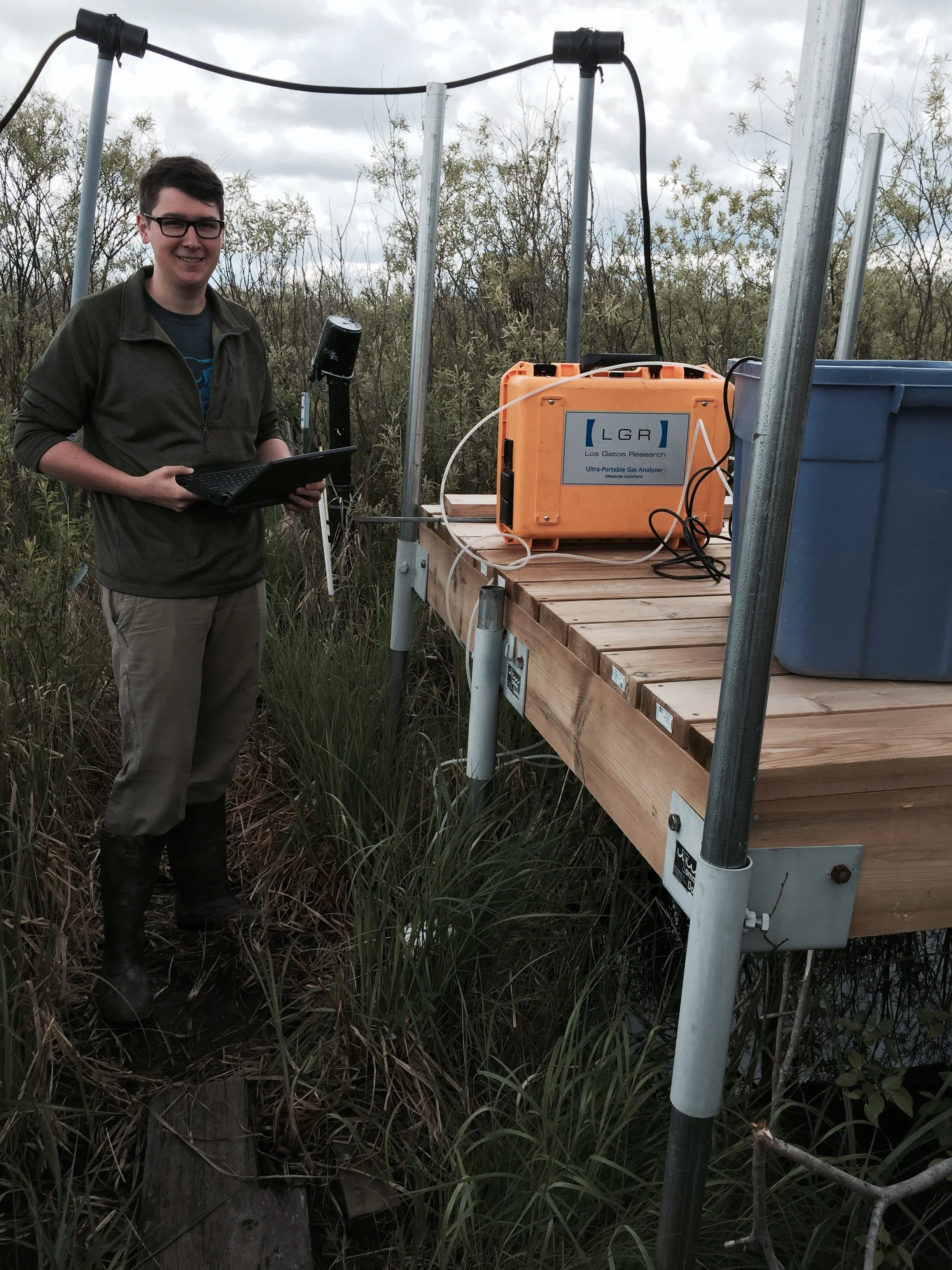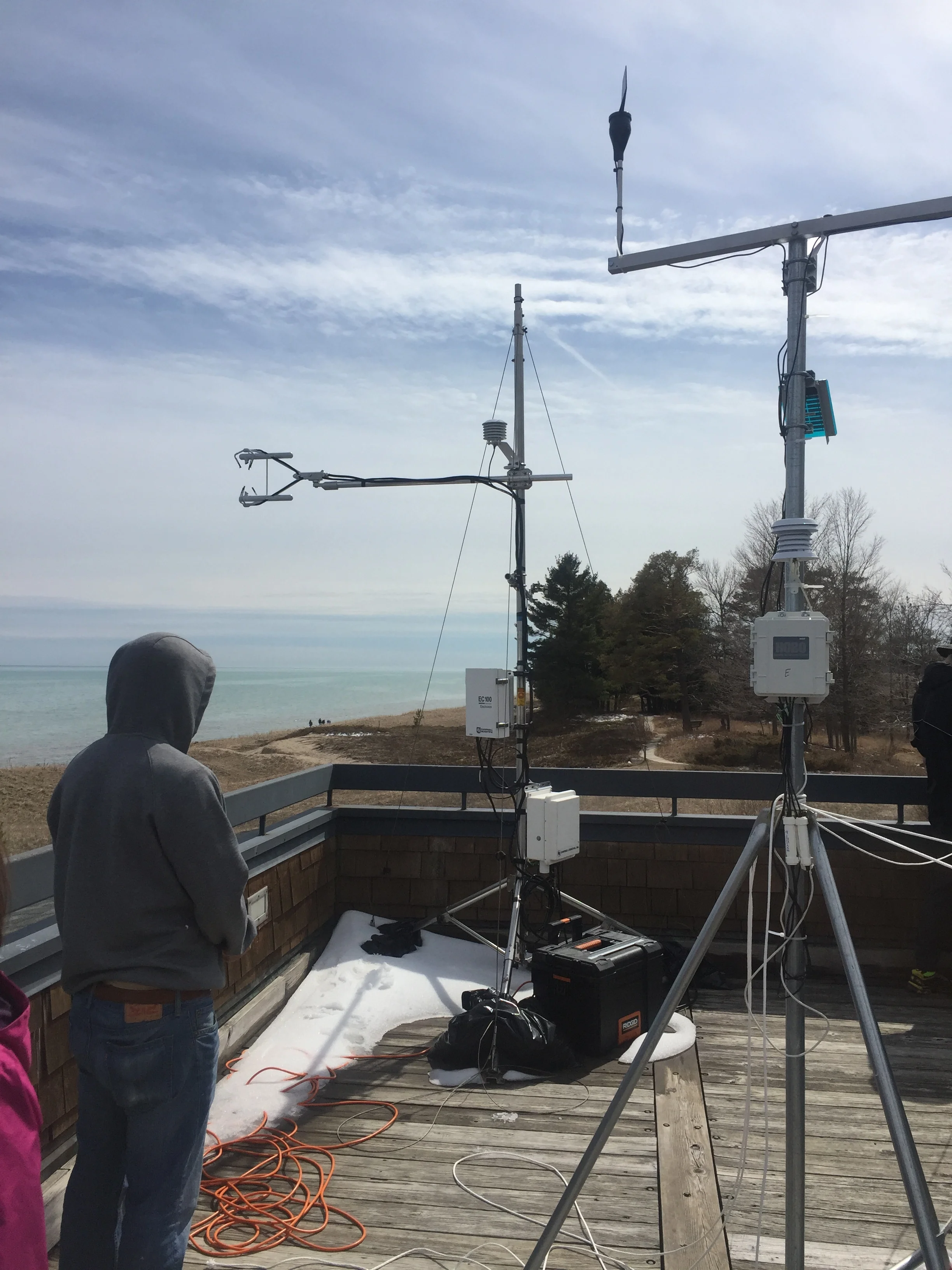
Here in the Desai Lab,
We study the positive, negative, and downright awkward interactions between the land and atmosphere over short (daily) and long (decadal) time scales. We measure how they exchange heat, water, and carbon, using a global network of flux towers organized by a global network of people.
We are particularly interested in plants (i.e. vegetation cover) and their unique role in modifying these exchanges, especially how human changes in vegetation cover, via deforestation, hydrologic modification, and land-use change, modify the intensity and outcomes of land-atmosphere interactions. Our long-term experiments have led to greater understanding of how a turbulent atmosphere behaves in response to changes in vegetation cover, across wetland, lake, and forest ecosystems. Our measurements and models directly influence the scientific basis of global change and provide a baseline from which policy makers, land managers, and farmers make decisions about fossil fuel emissions, forest harvest, irrigation practices, and more.
Here in the Desai Lab, we share our data (and our models) freely and in near real-time, believing that team science is our greatest hope for global solutions to global environmental challenges.
Browse our projects
The objectives of this study are to expand past statistical analyses to a greater range of snow and cyclone observations, focus on central/eastern North America, and understand future changes to the mid-latitude storm trajectories with retreating snow extent.
The Central Sands of Wisconsin is one of the premier agricultural regions of the US, especially for potato production. However, this production comes at a cost of groundwater use. We are working with growers on regional evapotranspiration and groundwater measurement and modeling.
The objectives of this study are to expand past statistical analyses to a greater range of snow and cyclone observations, focus on central/eastern North America, and understand future changes to the mid-latitude storm trajectories with retreating snow extent.
Our lab is working on several studies attempting to quantify the linkages between terrestrial carbon cycling and aquatic carbon cycling in lake rich regions such as the Northern Highlands lake district of northern Wisconsin.
Many of the most pressing questions about global change are not necessarily limited by the need to collect new data as much as by our ability to synthesize existing data. The Predictive Ecosystem Analyzer (PEcAn) seeks to improve this ability.
The Chequamegon Ecosystem-Atmosphere Study (ChEAS ) is a research cooperative that seeks to understand carbon and water cycles of terrestrial ecosystems at regional scales, using the Northwoods of Wisconsin as our study region. New projects have also focused on central and southern Wisconsin ecosystems.
CHEESEHEAD is an intensive field-campaign designed specifically to address long-standing puzzles regarding the role of atmospheric boundary-layer responses to scales of spatial heterogeneity in surface-atmosphere heat and water exchanges.

